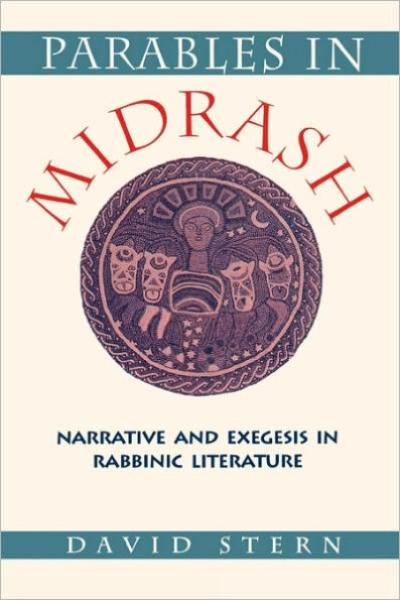Description
David Stern shows how the parable or mashal--the most distinctive type of narrative in midrash--was composed, how its symbolism works, and how it serves to convey the ideological convictions of the rabbis. He describes its relation to similar tales in other literatures, including the parables of Jesus in the New Testament and kabbalistic parables. Through its innovative approach to midrash, this study reaches beyond its particular subject, and will appeal to all readers interested in narrative and religion.
Stern shows how the parable or mashal--the most distinctive type of narrative in midrash--was composed, how its symbolism works, and how it serves to convey the ideological convictions of the rabbis. He describes its relation to similar tales in other literatures, including the parables of Jesus in the New Testament and kabbalistic parables.
David Stern is Harry Starr Professor of Classical and Modern Jewish and Hebrew Literature at Harvard University.
Stern argues persuasively that...the mashal's narrative becomes in itself a distinctly rabbinic form of scriptural exegesis. Stern's comparative discussions of parables ascribed to Jesus and the use of the mashal in later Hebrew literature make this book of great interest to students of New Testament, rabbinics, and literary theory.--Martin S. Jaffee "Religious Studies Review "
Parables in Midrash is one of the most sophisticated and mature works on rabbinic literature in this century... All readers will find the book an extremely valuable synthesis of cutting-edge methodologies, thorough knowledge of textual traditions, and the best exegesis of traditional literature the academy has to offer.--Burton L. Visotzky "Catholic Biblical Quarterly "
Well-written, comprehensible to the nonexpert and thorough in its description of material and in its use of modern literary criticism.--Anthony J. Saldarini "Theological Studies "
Stern shows how the parable or mashal--the most distinctive type of narrative in midrash--was composed, how its symbolism works, and how it serves to convey the ideological convictions of the rabbis. He describes its relation to similar tales in other literatures, including the parables of Jesus in the New Testament and kabbalistic parables.
David Stern is Harry Starr Professor of Classical and Modern Jewish and Hebrew Literature at Harvard University.
Stern argues persuasively that...the mashal's narrative becomes in itself a distinctly rabbinic form of scriptural exegesis. Stern's comparative discussions of parables ascribed to Jesus and the use of the mashal in later Hebrew literature make this book of great interest to students of New Testament, rabbinics, and literary theory.--Martin S. Jaffee "Religious Studies Review "
Parables in Midrash is one of the most sophisticated and mature works on rabbinic literature in this century... All readers will find the book an extremely valuable synthesis of cutting-edge methodologies, thorough knowledge of textual traditions, and the best exegesis of traditional literature the academy has to offer.--Burton L. Visotzky "Catholic Biblical Quarterly "
Well-written, comprehensible to the nonexpert and thorough in its description of material and in its use of modern literary criticism.--Anthony J. Saldarini "Theological Studies "
Last updated on
Product Details
- Harvard University Press Brand
- Apr 1, 1994 Pub Date:
- 067465448X ISBN-10:
- 9780674654488 ISBN-13:
- 364 Pages
- 9.26 in * 6.17 in * 0.89 in Dimensions:
- 1 lb Weight:




